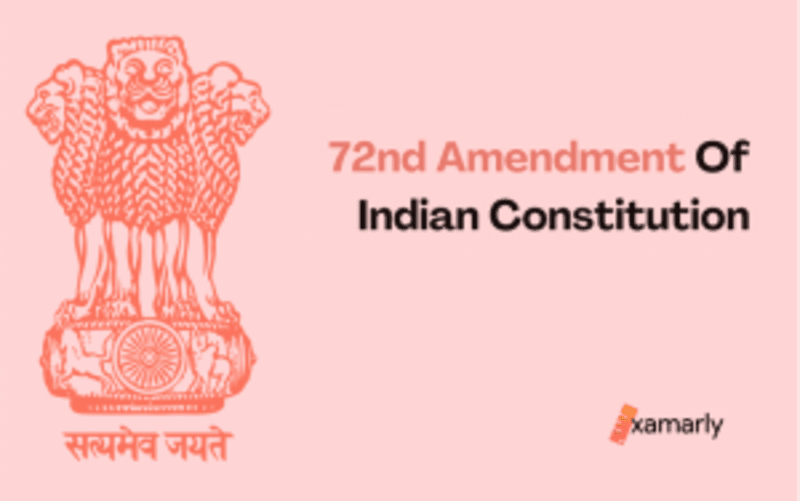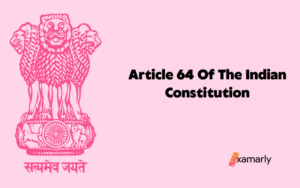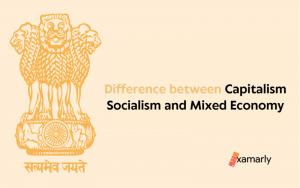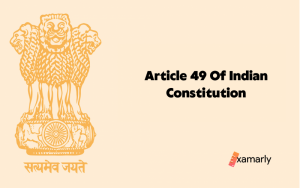The 72nd Amendment of the Indian Constitution is a piece of legislation that amends the Indian Constitution.
The Bill makes many significant changes to the existing constitution. The act provides the reservation to the STs in the legislative assembly of the State of Tripura.
It is valid till the date of re-adjustment of seats based on the first census after the year 2000, as provided for in Article 170 of the Indian Constitution for the state of Tripura.
In this article, we will look at the reason behind the need for this particular amendment. What constitutional changes this 72nd amendment brings is another motto this article addresses.
Learners preparing for the UPSC CSE Exam find this piece of information worth reading.
- 72nd Amendment of the Indian Constitution
- Objects And Reasons
- Important Provisions
- Conclusion
- FAQs on the 72nd Amendment of the Indian Constitution
- Which Amendment to the Indian Constitution Allows Scheduled Tribes to Have Reservations in the Tripura State Legislature?
- Which Government Tabled the 72nd Constitutional Amendment Bill?
- What was the status of Tripura before becoming a state of India?
- How has the status of Tripura changed since becoming a state of India?
- How was Tripura different from other princely states?
72nd Amendment of the Indian Constitution
Reservations have been allotted to Scheduled Tribes in the Tripura State Legislative Assembly in accordance with Article 170 of the Constitution and the 72nd Constitutional Amendment Act.
These reservations will remain in place until the seats are readjusted based on the results of the first census conducted after the year 2000.
The Scheduled Tribes (ST) and Scheduled Castes (SC) are guaranteed seats in the legislative assemblies of all states by Article 332 of the Indian Constitution.
Objects And Reasons
In the state of Tripura, due to special circumstances, on August 12, 1988, the Indian Government and the Tripura National Volunteers signed a Memorandum of Settlement.
For the sake of maintaining peace and harmony in the State of Tripura, this Memorandum of Settlement was signed. The aforementioned pact increased tribal participation in the state government of Tripura.
A proportion not less than the number of members from Scheduled Tribes (ST) in the current Assembly bears to the total number of seats in the current Assembly as of the date the Constitutional amendment entered into force shall determine the number of seats in the Legislative Assembly of the Tripura State that is designated for Scheduled Tribes.
Additionally, it states that up to the assembly’s dissolution, no representation in the current Tripura State Assembly shall be impacted by the revisions.
To put the Memorandum into effect, actions are needed, it needed to identify the seats to be reserved for ST in the state of Tripura.
Members of Scheduled Castes (SC) and Scheduled Tribes are guaranteed a certain number of seats in the Legislative Assembly of each and every one of India’s states by virtue of the provisions of Article 332 of the Constitution of India (ST).
Given the unique circumstances of the State of Tripura, it was proposed to amend Article 332 of the Indian Constitution to make a temporary provision for determining the number of reserved seats for Scheduled Tribes(ST).
It is valid till the date of re-adjustment of seats based on the first census after the year 2000, as provided for in Article 170 of the Indian Constitution for the state of Tripura
Important Provisions
The Seventy-Second Amendment Act, of 1992 amended the provisions of article 332. The important provisions of the Amendment are:
- The act provides the reservation of seats to the Scheduled tribes (ST) in the legislative assembly of the State of Tripura.
- It is valid till the date of re-adjustment of seats based on the first census after the year 2000, as provided for in Article 170 of the Indian Constitution for the state of Tripura.
Conclusion
The Constitution (Seventy-second Amendment) Act was enacted on the 14th day of December 1992.
As a notice published in the Indian Official Gazette. Article 332 of the Indian Constitution has been modified.
It provides temporary provisions for establishing the number of seats set aside for Scheduled Tribes in the Assembly of the State of Tripura until the centres are modified based on the results of the first census after 2000, as required by Article 170 of the Indian Constitution.
FAQs on the 72nd Amendment of the Indian Constitution
Which Amendment to the Indian Constitution Allows Scheduled Tribes to Have Reservations in the Tripura State Legislature?
The 72nd Amendment of the Indian Constitution allows Scheduled Tribes to have reservations in the Tripura State Legislative Assembly.
Which Government Tabled the 72nd Constitutional Amendment Bill?
The Narasimha Rao government brought the 72nd Constitutional Amendment Bill in 1991.
What was the status of Tripura before becoming a state of India?
Before becoming a state of India, Tripura was a princely state ruled by the Tripuri dynasty. It was one of the princely states that were part of British India and were not directly governed by the British.
How has the status of Tripura changed since becoming a state of India?
Since becoming a state of India, Tripura has seen significant development and progress in various fields, such as education, health, and infrastructure. The state has also become more politically stable, with a more representative system of governance. The economy has also improved, with the state being recognized as one of the fastest-growing states in the country.
How was Tripura different from other princely states?
Tripura was different from other princely states in several ways. Firstly, it was one of the few princely states that were never colonized by the British. Secondly, it had a unique system of governance, with a significant influence on the traditional tribal customs and practices.






